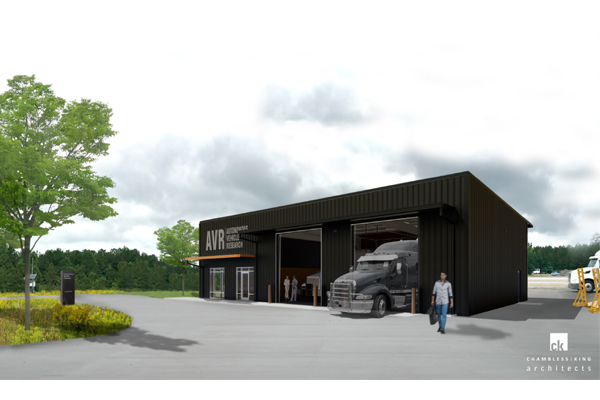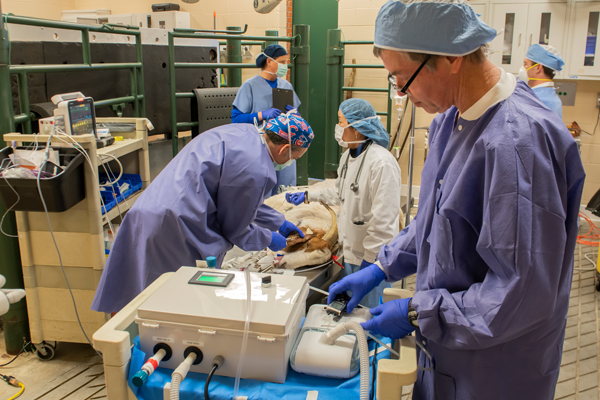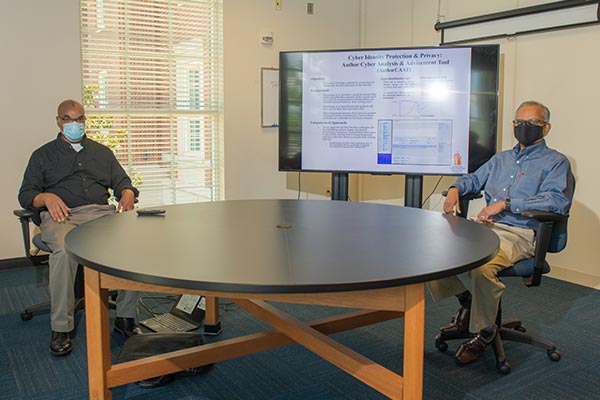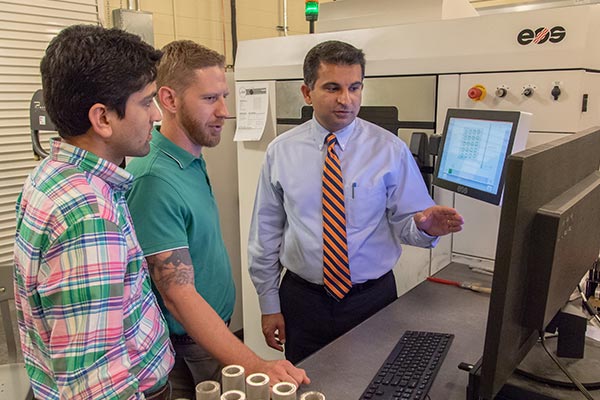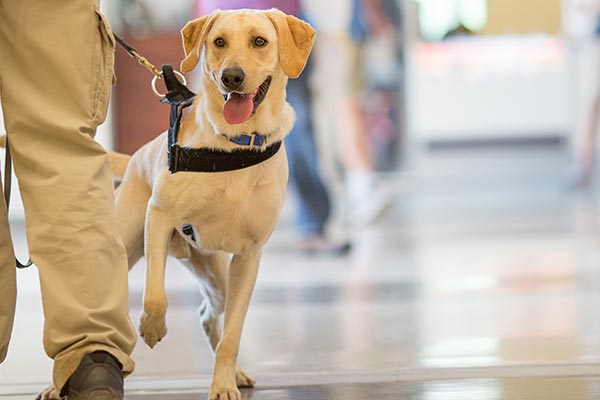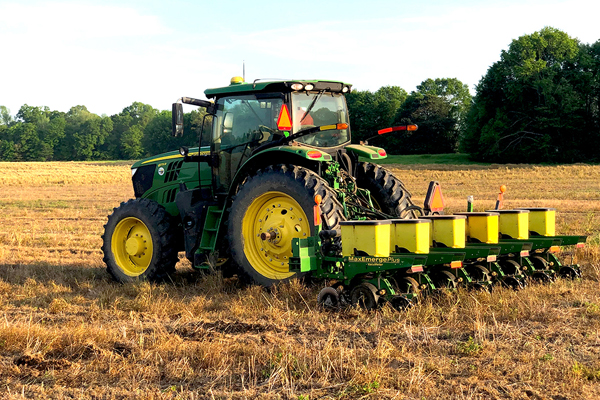Auburn research is on the forefront of discovery, meeting the need for a growing thrust in transportation engineering amid a growing demand for autonomous vehicles.
To that end, Auburn recently announced the planned addition of a sophisticated new autonomous vehicle research facility at Auburn’s National Center for Asphalt Technology test track. The facility is expected to provide a garage with multiple bays and lifts for commercial trucks and passenger vehicles, office space for researchers, a conference room and an observation area overlooking NCAT’s 1.7-mile oval test track.
As life-saving ventilators grew scarcer worldwide in the fight against COVID-19, an Auburn University research team worked tirelessly to get a device they’ve built into mass production. The innovative unit, which has now been successfully tested on a live goat, turns a continuous positive airway pressure, or CPAP, machine into an emergency ventilator.
The device, named RE-InVENT, can be assembled using approximately $700 in readily available components, in addition to a standard CPAP machine. CPAP machines are commonly used to help people with obstructive sleep apnea breathe more easily during sleep.
As artificial intelligence and related technologies become more entrenched in our daily lives, in everything from personal finance to health care, two Auburn University researchers are helping the state of Alabama stay ahead of the curve.
Samuel Ginn College of Engineering professors Hari Narayanan and Gerry Dozier are lending their expertise as members of the Alabama Commission on Artificial Intelligence and Associated Technologies.
How did the State of Alabama become America’s new additive manufacturing capital in less than three years? It’s an understandable question with an easy answer: Auburn University.
In late 2017, the university established the National Center for Additive Manufacturing Excellence, or NCAME through a public-private partnership with NASA, a move decisive enough to seal deals with 100 partners across government, academia and industry, such as Boeing, Delta Airlines and GE Aviation, as well as draw significant research funding from additional agencies, such as the FAA, NIST, NSF and the U.S. Navy. But NCAME’s chief collaborator remains NASA, which is counting on Auburn’s unparalleled expertise in 3D printing to help get astronauts back to the moon — and beyond.
